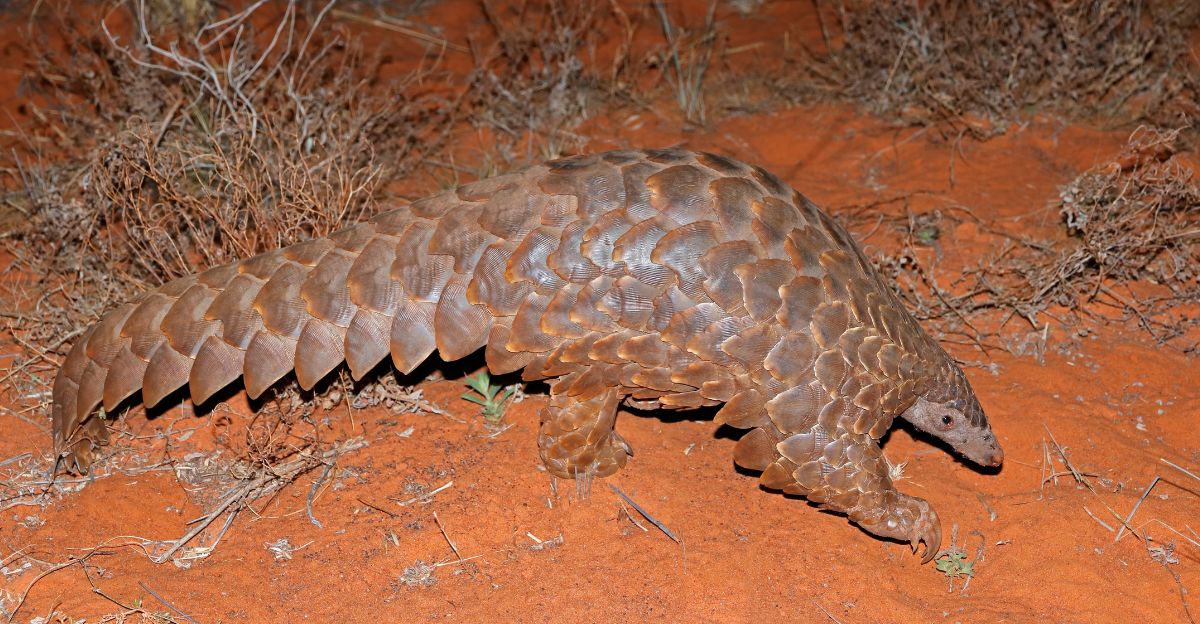
The United States has taken a significant step in the global fight against wildlife trafficking by proposing to list seven additional species of pangolins as endangered under the Endangered Species Act (ESA).
Pangolins, often described as the world’s most trafficked mammals, have suffered dramatic population declines due to illegal hunting, trafficking, and the loss of their natural habitat.
The move was made by the U.S. Fish and Wildlife Service to reinforce trade and import restrictions within the country, as well as to raise global awareness about the pangolins’ plight and to support conservation efforts to aid these remarkable, scaled-covered mammals.
If finalized, the proposal would prohibit any trade in pangolins and their parts in the United States, with limited exceptions for science and conservation.
The U.S. Proposal: A Game Changer for Pangolin Conservation

On June 16, 2025, the U.S. Fish and Wildlife Service announced a proposal to list seven species of pangolin as endangered under the ESA. The decision comes after years of pressure from conservation organizations and mounting scientific evidence of pangolin population declines.
The recommended listing includes four Asian species, the Chinese, Indian, Sunda, and Philippine pangolins, and three African species, the white-bellied, black-bellied, and giant pangolins. The Temminck’s ground pangolin from Africa is already protected under the ESA.
Why Pangolins Are Targeted

Pangolins are small, nocturnal mammals that are covered in keratin scales. Their unique biology and slow reproductive rates make them particularly vulnerable to exploitation.
The primary drivers of their decline are illegal hunting and the trafficking of their scales, which are highly prized in traditional Chinese medicine, and their meat, which is considered a delicacy in parts of Asia.
The lucrative black market for pangolin scales, with prices exceeding $3,500 per kilogram, has fueled organized crime and transnational smuggling networks.
The Impact of the U.S. ESA Listing

If the ESA listing is implemented, it would prohibit the import, export, and interstate trade of pangolins and parts through the U.S., with exceptions only for scientific and conservation purposes.
This will essentially close the U.S. market for pangolin products, reinforcing existing international trade bans under CITES (the Convention on International Trade in Endangered Species). The listing will also open up potential funding for anti-trafficking operations and habitat conservation.
Implications for China and Southeast Asia

China is still the primary destination for trafficked pangolin scales, with demand driven by traditional medicine practices. By eliminating the U.S. as a potential market and strengthening global enforcement, the ESA listing puts additional pressure on China and other Asian nations to crack down on illegal hunting and trade. It also represents a strong diplomatic signal, urging these countries to improve their own enforcement and public awareness efforts.
Strengthening Global Enforcement

The U.S. action complements international efforts to protect pangolins, all of which are listed in Appendix I of CITES, meaning commercial international trade is illegal.
However, enforcement limitations remain, especially in source and demand countries. The ESA listing may motivate other countries towards similar listings, harmonize legal frameworks, and share intelligence to disrupt trafficking networks.
Raising Global Awareness

In addition to legal constraints, the U.S. proposal is likely to raise global awareness of the pangolin crisis. Conservationists say the sustained public attention can help change behavior, reduce the demand for pangolin products, and garner support for habitat conservation.
The ESA listing would also highlight the ecological importance of pangolins, which plays a vital role in controlling insect populations and maintaining healthy ecosystems.
The Ongoing Threat of Trafficking

Despite international bans, pangolin trafficking persists. In recent years, there have been large-scale seizures of pangolin scales, often on their way to China from Africa via Southeast Asian transit hubs.
Organized crime syndicates take advantage of weak enforcement and lucrative returns, turning pangolin conservation into a transnational challenge. The U.S. move is a critical step, but global cooperation is still needed.
Opportunities for Conservation and Funding

Listing pangolins under the ESA will unlock new funding streams available for anti-trafficking and habitat protection initiatives. U.S. agencies and NGOs can now channel resources to help support rangers, community education, and scientific research in pangolin range countries. These initiatives are necessary to tackle the root causes of poaching, including poverty and lack of alternative livelihoods.
Next Steps and Public Participation

The proposed ESA listing is currently open for public comment until August 18, 2025. Conservation organizations call for a swift finalization of the rule to ensure pangolins receive the protection they urgently need.
The US action serves as an example for international wildlife policy and clearly illustrates that domestic laws can influence global biodiversity and the fight against illegal wildlife trade.
The recent proposal by the US to list seven pangolin species as endangered under the ESA is a significant blow to illegal wildlife traffickers, especially in China and Southeast Asia, and a great step forward in global conservation.
Explore more of our trending stories and hit Follow to keep them coming to your feed!

Don’t miss out on more stories like this! Hit the Follow button at the top of this article to stay updated with the latest news. Share your thoughts in the comments—we’d love to hear from you!







